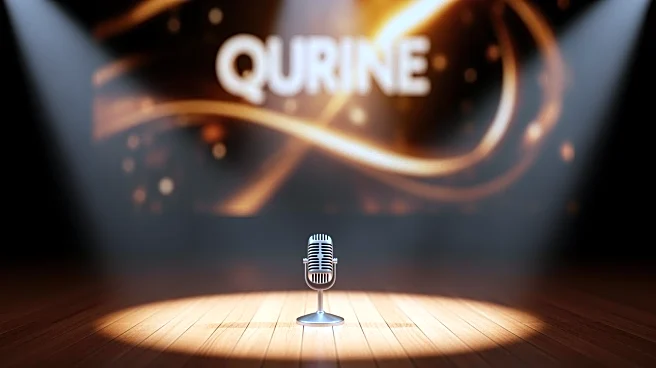What's Happening?
Shilo Sanders, son of Pro Football Hall of Famer Deion Sanders, has been released by the Tampa Bay Buccaneers following an incident during a preseason game where he punched another player and was ejected. Despite this setback, Sanders remains optimistic about his future in the NFL. In an Instagram post, he expressed his belief in a higher plan and his readiness to explore other opportunities, whether in football or other fields such as music, acting, and modeling. Sanders, who played safety for the University of Colorado, has faced challenges in his career, including a reputation for aggressive play. He acknowledges the unpredictability of an athlete's career and remains open to various paths forward.
Why It's Important?
The release of Shilo Sanders from the Buccaneers highlights the challenges faced by undrafted players in the NFL, particularly those with reputations for aggressive behavior. Sanders' situation underscores the competitive nature of professional sports and the importance of maintaining discipline both on and off the field. His openness to pursuing other career avenues reflects a broader trend among athletes who diversify their professional interests beyond sports. This development may influence how teams evaluate player conduct and potential, impacting future draft and recruitment strategies.
What's Next?
Sanders is currently in discussions with his agent to explore new opportunities, potentially within the NFL or in other industries. His future actions and decisions will be closely watched by sports analysts and fans, as they may set a precedent for how athletes navigate career transitions after setbacks. The Buccaneers' decision to release Sanders could prompt other teams to reassess their policies on player conduct and ejections, possibly leading to stricter guidelines or support systems for athletes facing similar challenges.
Beyond the Headlines
Sanders' release and subsequent statements may spark conversations about the pressures faced by athletes with famous family members, as well as the expectations placed on them. The incident also raises questions about the role of mentorship and guidance in helping young athletes manage their careers and personal conduct. Additionally, Sanders' willingness to explore non-sporting careers could inspire other athletes to consider broader career paths, potentially influencing cultural perceptions of athlete identity and versatility.









